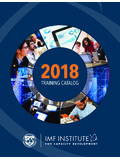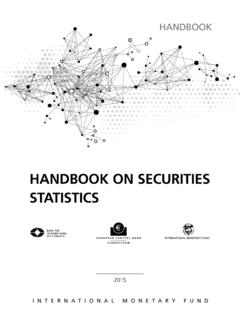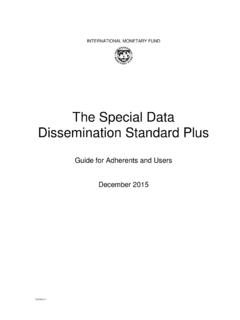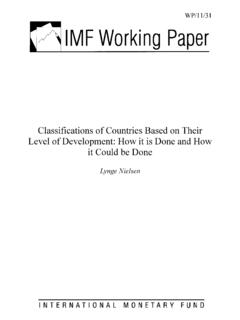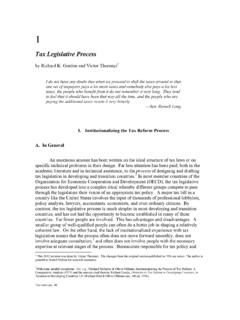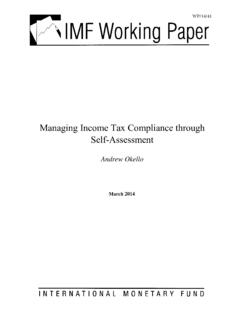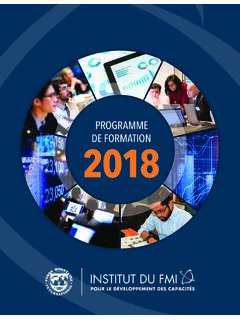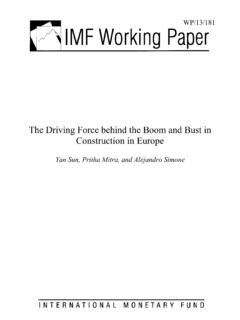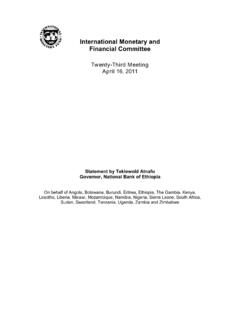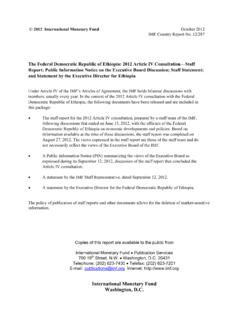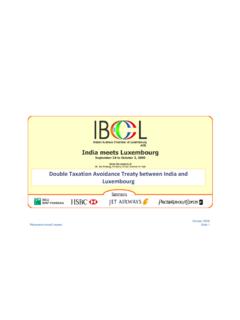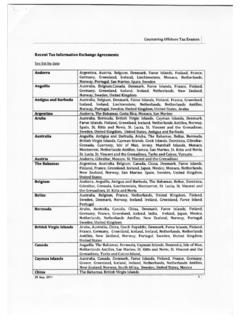Transcription of Enhancing Contributions To Combating Money Laundering ...
1 INTERNATIONAL MONETARY FUND AND WORLD BANK Enhancing Contributions To Combating Money Laundering : Policy Paper Prepared by: The Staffs of the IMF and the World Bank April 26 , 2001 Contents Page I. II. The Fund s and the Bank s Activities Relevant to the Countering of Financial System A. Fund B. Bank C. Fund/Bank Joint III. International Efforts to Counter Money IV. Enhancing Contributions to Combating Money Laundering : Issues for the Fund and the V. Resource VI. Issues for Text Tables 1. International Organizations Engaged in Anti- Money Laundering 2. Additional Staff Resources for Anti- Money Laundering 3. FATF 40 Recommendations with Relation to International StandardsFinancial Sector.
2 30 Box 1. Steps to Enhance the Fund s and Banks Contribution to International Efforts Countering Money Annexes I. FATF and Other Anti- Money Laundering Organizations that Include Legal/Criminal Enforcement Matters Within Their II. FATF 40 Recommendations and the Principles of - 2 - I. INTRODUCTION 1. The International Monetary and Financial Committee (IMFC), at its September 2000, meeting, requested the Fund to prepare a joint paper with the Bank on their respective roles in Combating Money Laundering and financial crime, and in protecting the international financial system. Moreover, the two institutions were asked to explore incorporating work on financial system abuse, particularly with respect to international efforts to fight against Money Laundering into its various activities, as relevant and appropriate.
3 2. An informal question and answer session with the Fund Board was held in February 2001 on the basis of the staff paper Financial System Abuse, Financial Crime and Money Laundering Background Paper (SM/01/46); in September 2000, Bank staff prepared an information note for the Bank Board on The Role of the World Bank Group in Promoting the Integrity of Financial Markets (September 21, 2000). These documents provide relevant background material for this paper. A joint Fund/Bank workshop on financial abuse, with seven outside speakers (including the current President of the Financial Action Task Force (FATF)), was held at the Fund on February 27, 2001. 3. Although no formal conclusions were drawn from these meetings, the following propositions seemed to gain some acceptance: (i) while financial abuse covers a variety of activities, it would be productive at the present time to concentrate on the role of the Fund and Bank in efforts to combat Money Laundering ; (ii) the Fund and the Bank are already helping countries strengthen their financial supervision and regulation, as well as legal and governance structures, contributing to the prevention of financial sector crime and Money Laundering .
4 (iii) substantial efforts relevant to countering Money Laundering are undertaken by other bodies and closer international cooperation would benefit all; and (iv) the Fund s and the Bank s work on strengthening financial supervision through the application of financial standards, including the preparation of relevant Report on the Observance of Standards and Codes (ROSC), overlaps with the financial/supervisory aspects of the Financial Action Task Force 40 Recommendations (FATF 40). 4. This paper proposes that the Fund and the Bank strengthen their role in the global fight against financial sector abuse, and Money Laundering specifically, by (i) publicizing, through official statements and other forms of outreach, both the need to put in place the necessary economic, financial, and legal systems designed to protect against Money Laundering and the role that the Bank and the Fund are playing in helping to meet this need.
5 (ii) recognizing the FATF 40 as a standard for anti- Money Laundering useful for Fund/Bank operational work, (iii) when undertaking Financial Sector Assessment Program (FSAP), ROSCs and offshore Financial Center (OFC) assessments, intensifying the focus on anti- - 3 - Money Laundering elements in the assessment of supervisory standards Basel Committee Principles (BCPs), International Organization of Securities Commissions Objectives and Principles for Securities Regulation (IOSCO Principles), and the International Association of Insurance Supervisors Insurance Supervisory Principles (IAIS Principles) and producing a detailed assessment which, with the concerned country s permission, could be published or shared with the FATF and/or the appropriate regional anti- Money Laundering task forces; (iv) working more closely with the major international anti- Money Laundering groups; and (v) increasing the provision of technical assistance (TA) from the Bank and Fund in this area.
6 5. Section II discusses work currently undertaken by the Fund and Bank that is relevant to countering financial abuse, especially with respect to helping national authorities improve their systems of financial regulation and supervision so as to create the environment within financial institutions to deter financial crime and Money Laundering . The paper then reports in Section III on the wider international efforts, including the work of the FATF and regional anti- Money Laundering task forces, in Combating Money Laundering . Steps to enhance the Fund and Bank Contributions to anti- Money Laundering efforts are proposed in Section IV. Section V discusses the resource implications. The key questions before Executive Directors (Section VI) are (a) whether the FATF 40 should be recognized as a standard for Fund and Bank operational work; and (b) how to enhance work on Money Laundering issues in Fund and Bank activities, in particular in technical assistance, including with respect to FSAP, ROSCs and OFC assessments, as well as in the context of technical assistance.
7 II. THE FUND S AND THE BANK S ACTIVITIES RELEVANT TO THE COUNTERING OF FINANCIAL SYSTEM ABUSE 6. Money Laundering is a problem of global concern, requiring concerted and cooperative action on the part of a broad range of institutions. The Fund and the Bank s principal Contributions to the fight against Money Laundering have been in their work to promote stronger financial, economic, and legal systems in general. Strengthened supervisory systems and robust legal and institutional framework for financial institutions help prevent a broad range of financial sector abuses, including Money Laundering . This section first discusses the activities special to each institution, then turns to those pursed jointly.
8 A. Fund Activities 7. Financial sector issues are central to the Fund s mandate as they are rooted in its purpose to promote macroeconomic stability and Anti- Money Laundering issues related to financial supervision and regulation (primarily those included in BCPs, IOSCO or IAIS Principles) are germane to the Fund s core responsibilities, while other anti- Money 1In April 1997, at the conclusion of the Biennial Review of Fund Surveillance, the Board called for increased attention in the period ahead to capital account and financial sector and banking sector issues (SUR/97/38, April 3, 1997). At the conclusion of the 2000 Biennial Surveillance Review, Directors recognized financial sector issues as one of the core issues in Fund surveillance (SUR/00/32, March 21, 2000).
9 - 4 - Laundering issues associated with criminal law enforcement (primarily those not included in BCPs, IOSCO or IAIS Principles) are beyond the Fund s core areas. Under existing Fund policies, anti- Money Laundering issues other than those relating to financial sector regulation and supervision are covered under surveillance and conditionality, as with other governance matters,2 only if they pass the macro-relevance The Fund could raise the issue of cross-border implications of Money Laundering , , during the Article IV consultation, for a given member when this is macro-relevant for other members or important for stability of the international financial system (under Article XII, Section 8).
10 8. The Fund in its broad operational activities surveillance, conditionality and technical assistance promotes stronger financial systems, including through FSAPs, OFC assessments, and ROSC exercises. The Fund s work helps national authorities strengthen their supervisory and regulatory systems which, in turn, helps both to promote the safety and soundness of the financial sector and to create an environment that prevents financial system abuse. In particular, assessments of observance of international standards, codes, and best practices in the areas of financial supervision, prudential regulation, transparency of fiscal and monetary policies, and data provision and dissemination have the potential to play a major role in fostering financial market integrity.
